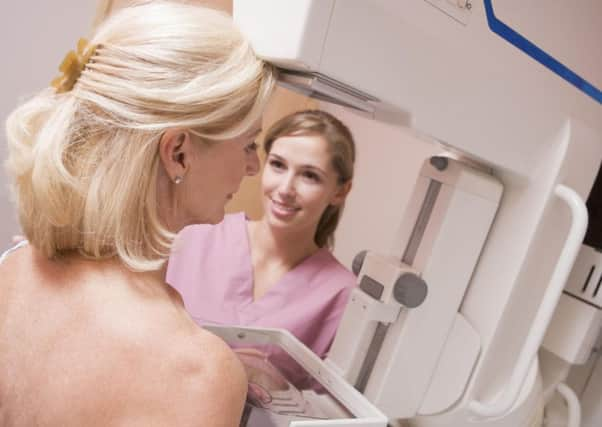New breast cancer vaccine '˜stops disease in its tracks'


The new treatment helped stimulate the immune systems of 80 per cent of women who took part in a clinical trial and almost one quarter of patients experienced tumour shrinkage, according to researchers from the US.
However the jab proved most effective in the very earliest stages of the disease.
Advertisement
Hide AdAdvertisement
Hide AdThe vaccine targets a molecule that cancer cells use to hide themselves from our natural defences.
The molecule, known as the HER2 protein, acts as an invisibility cloak - allowing breast cancer tumours to grow larger while staying undetectable to our immune system.
But by targeting HER2, the vaccine could help our immune cells recognise and destroy cancer while it is still in the early stages.
Researchers from the Moffitt Cancer Centre in Florida in the US, tested the vaccine on 54 women suffering from breast cancer.
The vaccine was created by taking immune cells from the blood of patients and exposing the cells to the HER2 protein.
Exposed cells are then able to recognise the protein as harmful, and when they are reintroduced into the patient’s body, they are able to find and destroy the cancer cells.
The vaccine boosted the immune systems of 80 per cent of cancer sufferers, and almost one quarter (12/54) of patients experienced tumour shrinkage after six weeks.
The treatment was well-tolerated and patients only experienced minor side effects including fatigue, injection site reactions, and chills.
Advertisement
Hide AdAdvertisement
Hide AdResearchers assessed the effectiveness of the vaccine by determining the percentage of patients who had detectable disease in samples taken from the patients.
The absence of disease - termed a pathological complete response (pCR) - was detected in 12 patients who took part in the trial.
Patients who achieved a pCR were also found to have a boosted immune system.
They found the treatment was most effective for patients who had breast cancer that had not spread beyond the milk duct of the breast, known as non-invasive disease called ductal carcinoma in situ (DCIS) cancer.
Dr Brian Czerniecki, from the department of breast oncology at the Moffitt Cancer Centre, said: “These results suggest that vaccines are more effective in DCIS, thereby warranting further evaluation in DCIS or other minimal disease settings, and the local regional sentinel lymph node may serve as a more meaningful immunologic endpoint.”
The study was published in online issue of the Journal of Clinical Cancer Research.
